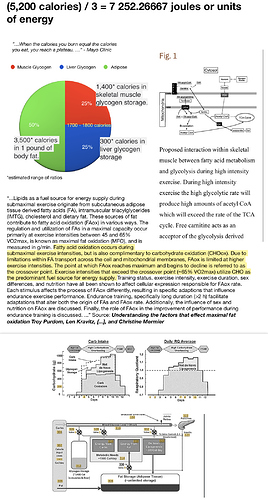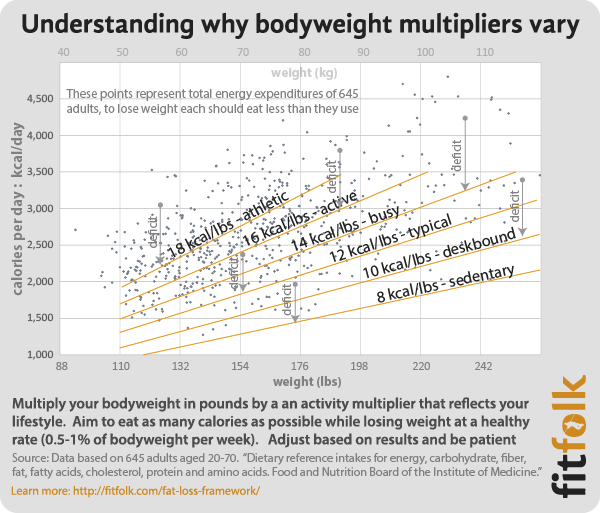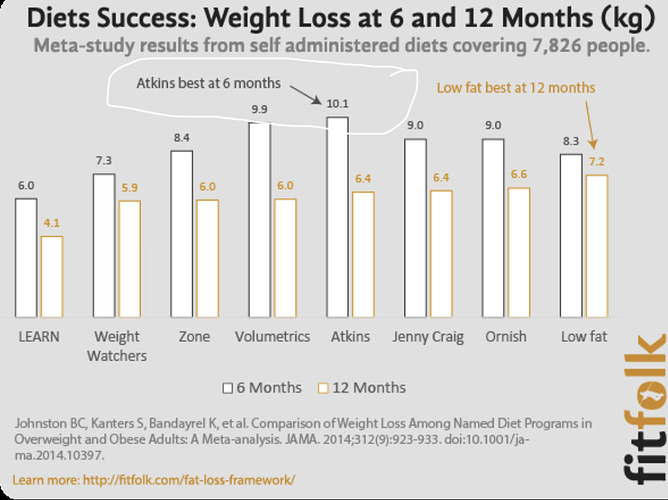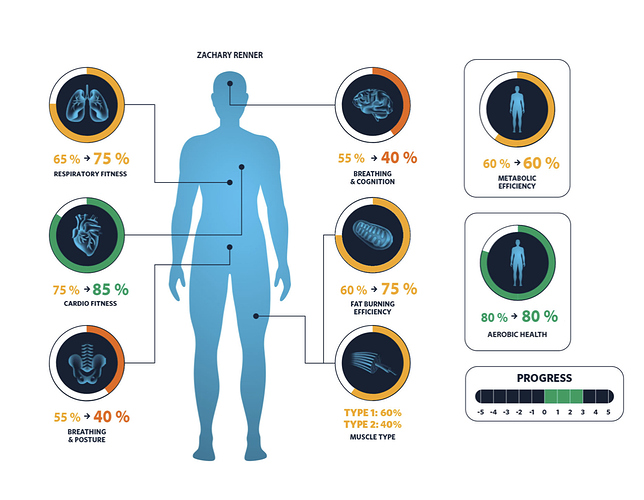I posted this in my original post "Discouraged, what am I doing wrong?"but wasn’t sure if it goes out there to everyone again. Sorry if it did and I am repeating myself.
Hello all, the key thing I have taken from everyone’s great advice is to concentrate on keeping carbs (I have even doing net carbs) below 20g and eat full meals with good amounts of fat. Don’t go nuts with the portions but eat enough to feel full and less inclined to snack.
My snacking has reduced to almost nothing and in the first couple of weeks I have lost 14 lbs, however that is it. I have not budged since then. My meals are very basic and I am paying attention to carbs and fats.
I tried a ketone strip twice today and it barely indicates anything.
Everyone I talked to before starting this, it didn’t seem difficult to get themselves in ketosis. I feel better than I used to but that’s it, I am starting to wonder why I’m doing this.
I have read and heard various things but don’t know why it has to be complicated. It seems so much easier for others.
Things told to do:
Go for 20g real carbs not net (that seems almost impossible)
Start watching calories as well.
Start watching how much protein now.
Exercise more.
Do the intermittent fasting.
Do the 16 hour/8 hour method.
Have a cheat meal, that will kick start it.
And so on and so on.
I just seem to be stuck and don’t know what to try next.
Any ideas?
Lost some and now Stuck
If you are eating sub-20 grams of carbs per day and are not comatose, you are in ketosis. A few folks with severe insulin resistance and/or pre-diabetic or full-on T2D might have to go lower than 20. It doesn’t hurt to go lower and it’s very possible to do. If you are using so-called ‘pee sticks’, they are inaccurate at best and useless at worst. You may simply be utilizing all or most of the ketones your liver is synthesizing and next to nothing is getting to your urine. Or, if you have a lot of urine any ketones may be so dilute that the sticks don’t detect them. Or maybe the sticks are past their ‘best before’ date.
As for weight loss. Keto is a normalization process not a weight loss diet. A lot of stuff happens all at once as your metabolism tries to heal the damage done by years of eating SAD. Keto trends towards your normal, whatever that is, including your normal weight. But it’s not a straight forward, linear progression. From time to time other stuff may take precedence and weight can stabilize for a while. Finally, what you think your normal should be may just be wishful thinking.
If you detail your food choices, macros, total calories, etc. those with more knowledge and experience with weight loss can advise you more specifically. If you haven’t done so elsewhere, tell us about yourself and how much weight you want/need to lose. Especially, if you have any health issues, tell us about them.
So you got a 14# loss in two weeks, what is the length of your “stall”? First you dropped a lot of water fast most likely from depleting glycogen stores. Real actual fat loss averages 1-2 lbs. per week when you’re fat adapted but results will vary with all the factors considered. Some lose slower, some a little faster. Factors include how overweight you are, male or female, age, activity level, what you are eating, sleep, stress, insulin resistance, medical issues (especially diabetes) and many more including genetic variations. Generally you’re not considered to be in a stall unless you’ve had no change in six or eight weeks. There will be plateaus where your body is recomposing. You should note changes in how clothes fit, waist shrinking, face thinning etc. If you exercise you’re likely to gain muscle mass as you lose fat so your body looks and feels better but the scale isn’t moving much. Occasionally take a naked mirror picture for reference. I think you’ll often see you aren’t really stalling, changes are happening. Also pay attention to improvement in how you actually feel, energy levels, improvements in medical and skin conditions and more.
Some of the things you were told to do I don’t agree with, limiting calories and protein generally aren’t necessary, too much exercise can stall you, jump starting with a cheat meal is the worst one and I definitely disagree with that being helpful especially early on but really probably never. You will be able to tolerate cheat meals better after long term eating strict KETO but how much and how often is tricky, lots of off the rails KETO eaters who go back to carbs, it can be a slippery slope for many. 
Have faith in yourself. We live in a world of instant gratification. Give it time and maybe look at it in a less serious light. Stick with it and it will be ok.
Your trying to use cookie cutter methods on your individual metabolism?
How to calculate how many calories you should eat to lose weight:
Daily caloric needs are different for every person, so don’t expect your sweet spot to match your workout partner’s or your best friend’s.
It’s particular to you and you alone, and that’s because we all have our own Basal Metabolic Rate (BMR). According to Healthline, this number can be found by using the Harris-Benedict formula. This formula is split by gender.
- Women: 655 + (9.6 × weight in kg) + (1.8 × height in cm) – (4.7 × age in years)
- Men: 66 + (13.7 × weight in kg) + (5 × height in cm) – (6.8 × age in years)
For even more accuracy, you should multiply your BMR by another number that’s based on your activity level. So multiply by:
- 1.2 if you are sedentary (little to no exercise)
- 1.375 if you’re lightly active (exercise 1-3 days a week)
- 1.55 if you are moderately active (exercise 3-5 days a week)
- 1.725 if you are very active (exercise 6-7 days a week)
How many calories do you need to cut to lose weight?
Depending on where you fall in there (above), White says you could lose one pound of body fat a week if you subtract 500 calories per day (or 3,500 calories per week) from this number.
linkFor example, if you’re a woman whose BMR is 1,500 and you’re moderately active, that’s 2,325 calories a day. To drop a digit on the scale, you’ll need to subtract 500 calories from that total amount, as White suggests. This means eating 1,825 calories a day. …” …More
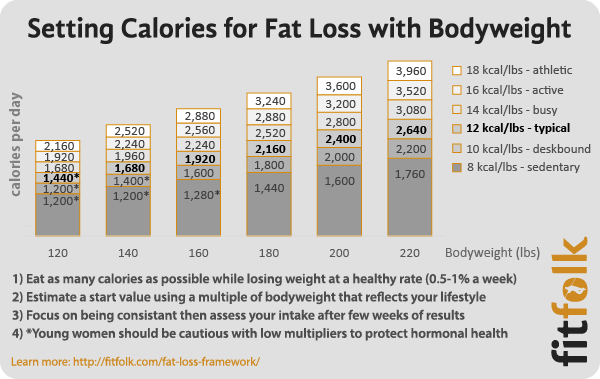
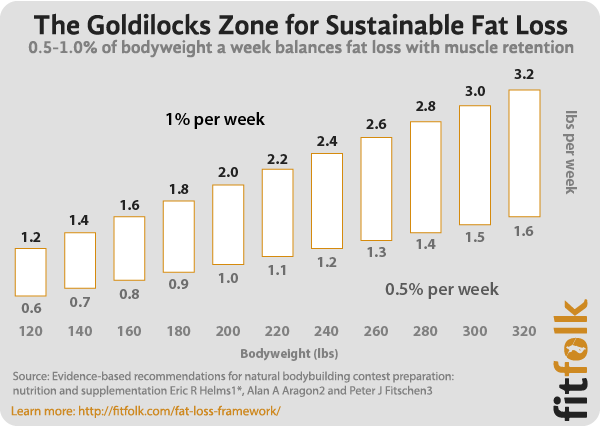
If you cut calories you may lose weight initially. But that ALWAYS slows your metabolic rate which means, unless you eat fewer calories forever you will regain everything you lost. And probably more. When are we going to learn this?? This does not happen, BTW if you fast. So if you aren’t losing weight with keto, add in a couple of fasting days.
I can see why fasting would help because you have to find a way to burn thorough 1,700-1,800 endogenous calories or so just to get to the beginnings of oxidizing body fat (endogenous 3,500 calories to burn up for 1 pound of oxidation) besides what you are eating and factor in how fast you are burning that up while at rest or RMR/BMR & what your going to be burning (oxidizing) up from activity or physical exertion?
Endogenously you have a 5,200 calorie wall to burn through besides factoring in the exogenous calories you are eating?
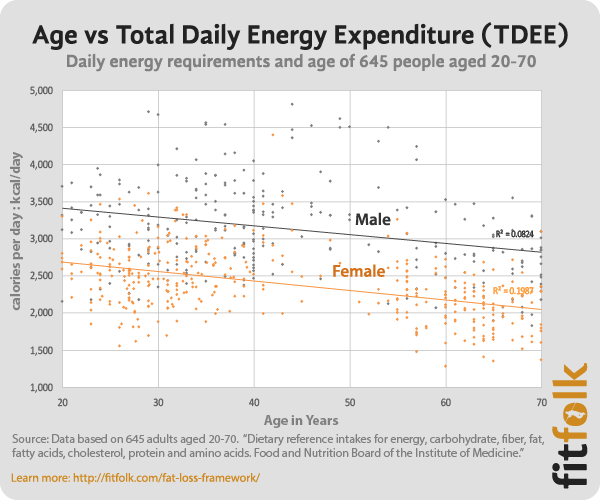
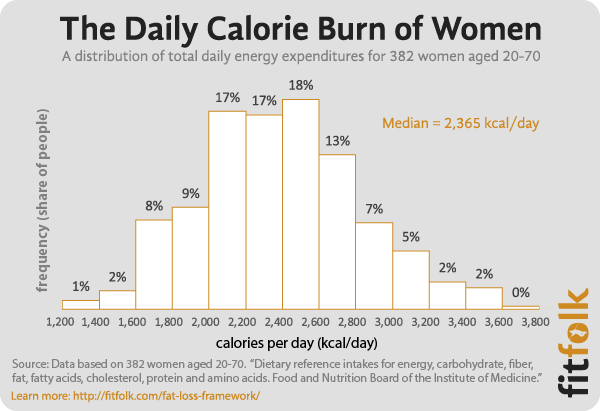
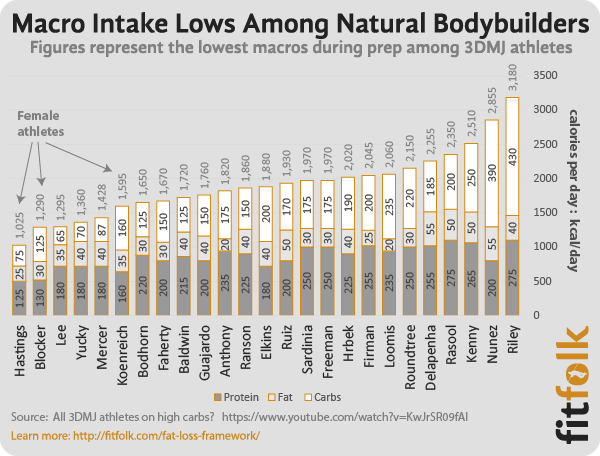
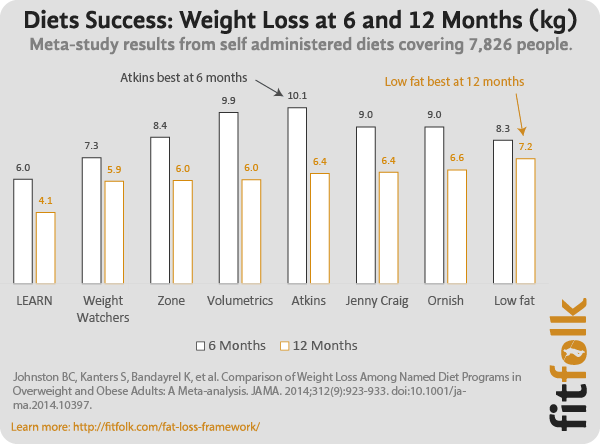
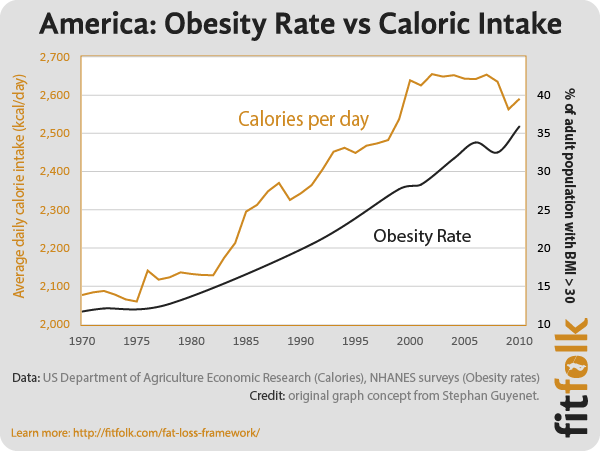
You can’t follow everyone’s advice and thankfully, there is no need. Maybe try things you are most comfortable with and see what happens? And then try other things…?
20g total carbs isn’t impossible if you focus on animal products, I easily go significantly below 10g total now if I want - but I couldn’t do it for years either and it’s not even needed in my case, only net carbs matter to me regarding fat-loss. (Only calories matter, actually but it’s strongly correlated with net carbs, among a few others. It’s often totally different for other people.) We can’t possibly know what would work for you or what are you willing or able to do.
Extended fasting isn’t the answer for everyone either. It surely would help me a lot as it’s my only way for a big deficit and anyway, autophagy is good, I just can’t do it. IF is my thing and some people can’t do even that comfortably. It’s better to find another method then.
I consider more exercise a good idea in most cases but it isn’t good for everyone either.
I don’t understand why would a cheat meal help, I find the idea of rare higher calorie days potentially very good but only if you feel the need for it (or know you typically undereat).
It IS complicated for some people. I never lost fat on keto permanently and my current style is nothing like my original either. Many people have serious problems on their original keto until they figure out how they should eat. Ketosis can be really great but it alone isn’t magical problem solving. Some people are lucky and their first keto style is their last and they are happy, lose fat at a great place and so on. Others need to tweak things and being extremely patient, maybe for very long. (Especially with some serious baggage from our past or with certain personalities…)
If you eat little enough carbs, you are in ketosis, don’t worry about that part.
It’s not about calories. It’s about hormones. Fasting lowers insulin levels.
Singing to the choir?
I’m explaining this using another angle (if you were to count calories; units of energy) and yes it is about calories my dear because individual metabolism (hormones; i.e. insulin, glucagon, HGH, adrenaline, sex hormones ect.) is ALL being taken into consideration in what’s being discussed so let’s not try to detract from it through parroting others and not fully understanding what’s being discussed and if that is (or is not) the case please tell us about your personal knowledge of hormones and endocrinology?
The Atkin’s would be comparable to the ketogenic diet.
What Individual Endogenous Scaling Of Metabolism Would Look Like If You Had The Hardware (e.g. an app and the hardware to go with it):
image linkYes, I can. I’m a physician with BodyLogic MD. You can find me at https://www.bodylogicmd.com
Ok then you must know about individual bio-accumulation of hormones in organ tissues and why would you want to add more blood circulating hormones to that?
So a person as knowledgeable as yourself could be a wealth of information?
I’m all ears and ready to learn?
You don’t want to add more to that. You want to reduce insulin levels. Insulin is a fat storage, fat synthesis hormone. If it is elevated in the fasting state (as it is in insulin resistance which I see ALL THE TIME in the clinic, because we do check
fasting insulin levels) you will not be able to break down fat and utilize it for energy. So you will have a very difficult time losing weight. You will also be hungry.
Every time you eat you raise blood sugar levels which, in turn, raises insulin levels. Carbs do this more than other macros which is why low carb diets are such effective weight loss diets. But fasting - when you eat NOTHING and so do not cause the release
of any insulin - is more effective and faster.
So, I always start my patients who want to lose weight on a time restricted eating schedule -even before cutting carbs (Longer fasts of course are better but very hard to do if you are insulin resistant). I have a handout on that if you want me to send it to
you.
@GordG
14lbs in 2 weeks is a lot! Only people who start out at a very high weight lose much more from the start. And it might have been water weight and not fat at the beginning. I lost 14 lbs in 2 months!! And I am happy with that and you are not. I honestly don’t know what your expectations are?
Sure. It is attached. This is actually step 1 of an online weight loss course that I am putting together. I don’t have the facebook group set up yet -so ignore that part. If you don’t get this, you will need to send me a direct email address. (you can send
that to bschiblymd@bodylogicmd.com)
(Attachment STEPWISE WEIGHT LOSS PLAN step one.docx is missing)
What i have learned over the last 20 years of eating the keto way (it was low carb) back then. Is that you MUST reduce your insulin response both duration and in frequency. Pure fat gets you the least rise in insulin and the duration is low for me about 30 to 45min and my blood glucose drops back to about 3.8-4.0 peaking to 4.5 -5.0 after eating pure fat (a stick of butter will do) no sure how many calories that is? Far better to eat one large keto meal a day than 5 or 6 meals a day. I’ll consume anywhere from 1500 calories to 5000 in a single meal (usually at night) it varies but i don’t count. I eat till i’m full (Really full Christmas day Full) but only eat 3-6 times per week. so my insulin only has a response 3-6 times a week. that leaves my body plenty of fat burning time in between insulin responses.
Lately though, since the start of the year I’ve started to eat carbs but keep the same eating regime, 1 meal a day or every other day. I’ve gained about 3 kg in weight which i’m not concerned about at this stage. What I have noticed is that fasting has become more difficult and more mentally challenging. 48 hrs fasting on keto is simple for me these day (Plenty of practice) but add some carbs into the mix and it becomes quite difficult indeed. I’d like to understand more about why this is the case?
Rather than increasing appetite and hunger in general, however, insulin-induced hypoglycemia may specifically increase appetite and hunger for more carbohydrates, especially sugar.

